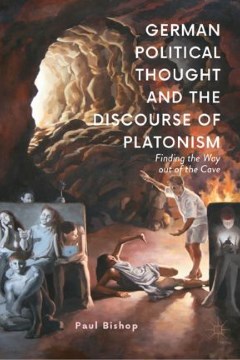Buch
German political thought and the discourse of Platonism
finding the way out of the cave
Abstrakt
Taking Plato’s allegory of the cave as its starting-point, this book demonstrates how later European thinkers can be read as a reaction and a response to key aspects of this allegory and its discourse of enchainment and liberation. Focusing on key thinkers in the tradition of European (and specifically German) political thought including Kant, Marx, Hegel, Nietzsche, Heidegger, and the Frankfurt School, it relates them back to such foundational figures as Rousseau, Aristotle, and in particular Plato. All these thinkers are considered in relation to key passages from their major works, accompanied by an explanatory commentary which seeks to follow a conceptual and imagistic thread through the labyrinth of these complex, yet fascinating, texts. This book will appeal in particular to scholars of political theory, philosophy, and German language and culture. Paul Bishop is William Jacks Chair of Modern Languages at University of Glasgow, UK. His previous publications include Carl Jung (2014), A Companion to Friedrich Nietzsche, Life and Works (2012), and Nietzsche and Antiquity: His Reaction and Response to the Classical Tradition (2004).
Details | Inhaltsverzeichnis
the revolution
pp.195-222
https://doi.org/10.1007/978-3-030-04510-4_7a glance to the right
pp.223-284
https://doi.org/10.1007/978-3-030-04510-4_8Publication details
Publisher: Palgrave Macmillan
Ort: Basingstoke
Year: 2019
Seiten: 408
DOI: 10.1007/978-3-030-04510-4
ISBN (hardback): 978-3-030-04509-8
ISBN (digital): 978-3-030-04510-4
Referenz:
Bishop Paul (2019) German political thought and the discourse of Platonism: finding the way out of the cave. Basingstoke, Palgrave Macmillan.




